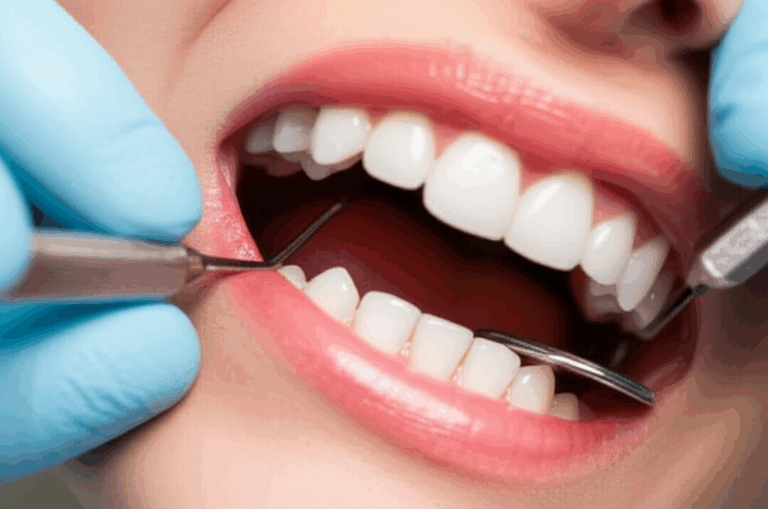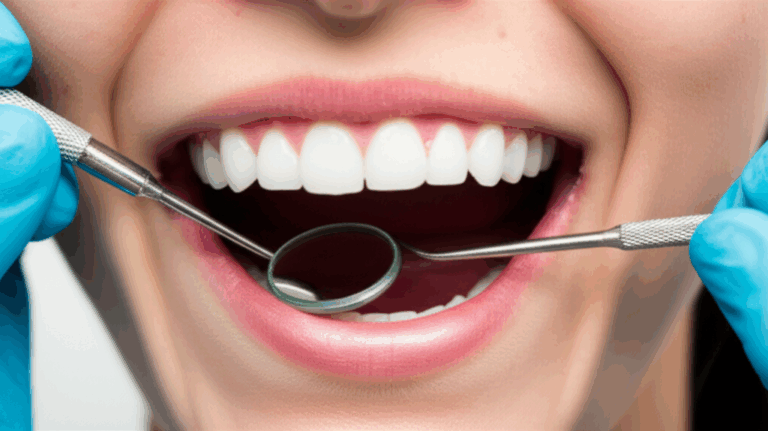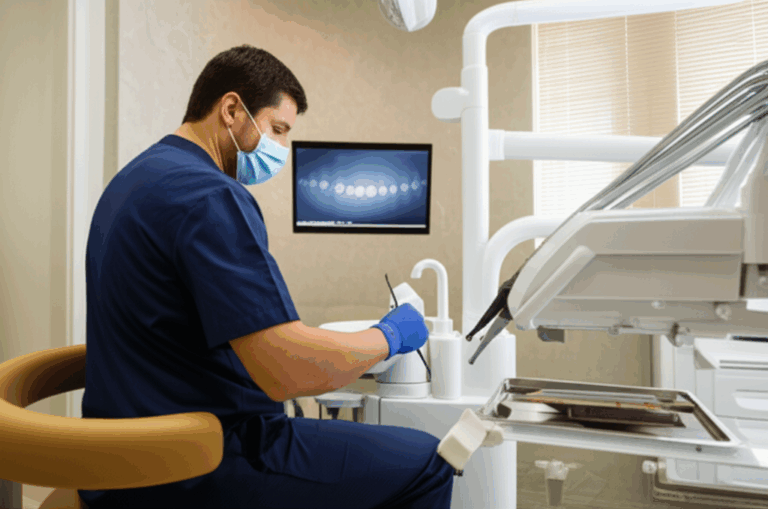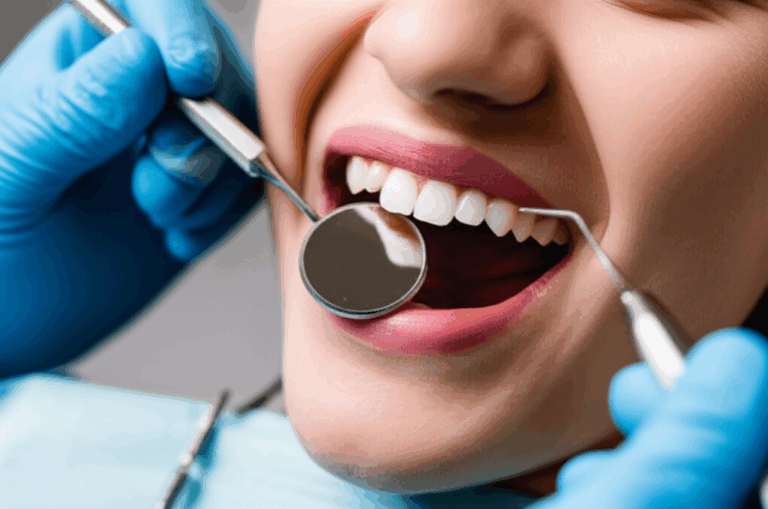
Can Your Dentist Access Your Medical Records? Understanding Your Rights & Dental Privacy Under HIPAA
Have you ever wondered, “Can my dentist see my medical records?” You’re not alone! Many people feel worried about what happens to their private health information when they go to the dentist. This article explains everything you need to know about how dentists use your medical history, what the law says about your privacy, and how you can stay in charge of your health information. Whether you want to know why your dentist cares about your health conditions or you just want to feel better about privacy, this article is for you!
Table of Contents
Why Do Dentists Want to Know About My Medical History?
Think about when you walk into your dentist’s office for a checkup. Suddenly, you’re holding a long medical history form, wondering why your dentist needs to know if you’ve ever had surgery or taken certain drugs.
Here’s why your dentist asks:
- To Keep You Safe: Dentists need to know about your allergies, any medicine you take, and big health problems like diabetes or heart disease. Why? Because your health can affect your teeth—and what happens at the dentist can affect your health too! For example, if you’re on medicine that makes your blood thin, your dentist will treat you differently.
- Better and Safer Care: Treating your mouth isn’t just about teeth. Some medicines make your mouth dry or can cause bleeding. Conditions like diabetes make it harder to heal after surgery. By knowing your medical history, your dentist picks the safest way to treat you.
- Your Whole Health Is Connected: Dentists sometimes talk to your other doctors—like if you need something special such as sedation, implants, or a dental crown from a crown and bridge lab. Good communication keeps you safe.
Real Example:
Ms. Lee had a toothache. She told her dentist she took medicine for her heart, but forgot to mention a recent surgery. When her dentist saw the new surgery on the form, he knew she needed antibiotics to stop a bad infection. The medical history form wasn’t just paperwork—it was a life-saver!
What Is HIPAA and How Does It Protect You?
You might have seen “HIPAA” on signs at your doctor or dental office. But what is it? HIPAA stands for the Health Insurance Portability and Accountability Act—a law that keeps your health info private.
How does HIPAA help you?
- Protected Health Information (PHI): HIPAA says all your health information—like your treatments, health problems, and even what medicines you take—must stay private unless you say it’s okay.
- Dentists Must Follow HIPAA: Dentists, like doctors, are “covered” by HIPAA. That means they must follow the law about your records.
- The Privacy Rule: Dentists have to tell you how your info is used. They can only use your details for treatment, billing, or running the office. If they share more than needed, that’s a problem.
Did You Know?
Since 2003, there have been more than 300,000 HIPAA complaints. Privacy matters a lot, and the government takes it seriously.
HIPAA Made Easy:
Think of HIPAA like a lock on your health story. Only people you say can open it, and even then, they can only take out what they really need.
When Can Dentists Access Medical Records?
Let’s answer the big question: Can dentists really see all your medical records?
Here’s what really happens:
- They Need Your OK: Dentists can only get your medical records (from other offices, hospitals, or specialists) if you say so. Usually, you sign a form if they need info from somewhere else.
- Needed for Care: Dentists use the info you put on forms, plus any records you let them get, to figure out your care. If you’re getting a dental implant, knowing about your bone health, allergies, and health conditions keeps things safe.
- Only What’s Needed: Dentists are supposed to ask for and use the least amount of information needed to treat you right. They can’t just look at everything in your file!
When Is Extra OK Needed?
If your dentist wants records from your hospital or another doctor, you need to sign a form. But if you fill out a health history at the dentist, you’re usually letting them use what you put down.
| Situation | Does Dentist Need Your OK? |
|---|---|
| You fill out a health form | No (you give it) |
| Dentist calls your doctor | Yes |
| Dentist looks at own old records | No |
| Dentist asks hospital for info | Yes |
Fun Fact:
Not all health info helps your dentist. They want what helps them take care of your mouth, not every little detail about your health.
How Do Dentists Get Medical Information?
- You Tell Them:
When you go to the dentist, you usually fill out a medical history form. You write down allergies, medicines, and health issues. Sometimes, you talk about updates with staff.
- Getting Records:
If your dentist wants more info—maybe from your heart doctor—they’ll ask you to sign a special consent form. Then they ask the doctor for the info they need.
- Electronic Records:
Some dentists use computers that store dental records or can link to health records from other places. This makes sharing faster and safer—but only what you say is okay gets shared.
- Teamwork:
For big dental work, like veneers or fixing all your teeth, sometimes your dentist talks to other doctors about your care. When you say it’s okay, they get what they need to help you.
Example:
If you’re getting a night guard, the office might ask if any of your medicines make you grind your teeth. Or, for a denture from a removable denture lab, they might check if you have dry mouth from medicine.
What Records Do Dentists Really Need?
Not all health details matter for your teeth. Dentists take what helps your care.
The Most Common:
- Current and past health conditions: Diabetes, heart problems, asthma, and so on.
- Allergies: To medicines, latex, or even metals in crowns and bridges.
- Medications: Prescriptions, store bought, or herbal stuff.
- Surgeries before: Especially in the mouth, jaw, or if it changes bleeding.
- Vital signs: Blood pressure, sometimes temperature or pulse.
- Diagnoses that matter: Like sleep apnea or bleeding problems.
- Dental records: X-rays, impressions, or notes if you switch dentists.
Rarely Needed:
- Mental health info not related to dental work
- Reports from other doctors unless they matter for dental stuff
- Other info not about oral health or treatment safety
Remember:
Dental offices can’t magically see your whole health history. What they know depends on what you tell them and what you let them get!
Do I Need to Give Consent Every Time?
A lot of people ask: Do I have to sign forms at every visit?
Here’s what usually happens:
- General OK:
When you fill out forms your first time, you usually give general permission for treatment and let the dentist use that info for your care and billing.
- Special Permission:
If your dentist wants info from outside (like your main doctor or a hospital), you must sign a special form each time.
- You Can Change Your Mind:
If you decide you don’t want your dentist to get certain records, you can tell them.
What’s on a Good Permission Form?
Tip:
If you ever feel confused, ask the dental office to explain what they need and why.
What Happens If I Don’t Share My Medical History?
Problem:
You want to keep things private, so you leave stuff off the form or don’t share info.
Why That’s Not Good:
Without important info, your dentist could miss an allergy, give you medicine that’s not safe for you, or not keep you safe from infection.
What to Do:
If you tell your dentist about your health—especially things about bleeding, healing, or medicine reactions—you’re safer. Sometimes a dentist will say they can’t treat you without enough info. That’s not because they just want details; it’s to keep you healthy.
Real Story:
Sam didn’t say he was allergic to penicillin. The dentist almost gave it for an infection. Only after checking his updated form did they catch the error and avoid a bad reaction.
Pro Tip:
If you think something isn’t important, tell your dentist anyway—it could really help your care.
What Are My Rights When It Comes to Dental Records?
You’re not stuck when it comes to your records. Here’s what you can do:
- See Your Records:
Ask for a copy of your dental or health records. The office should give them to you soon.
- Fix Mistakes:
See something wrong? Ask to get it fixed or add a note.
- See Who Saw Your Info:
You can ask who the dentist shared your info with.
- Limit Sharing:
You can ask your dentist not to share certain info, but this could change your care.
- Complain:
Tell the government if you think your privacy was broken.
| Your Right | What It Means |
|---|---|
| See Records | Look at or get copies of your info |
| Fix or Add | Ask for corrections or more details |
| Who Got Your Info | Learn who got your records and why |
| Limit Sharing | Tell your dentist not to share certain things |
| File a Complaint | Report to the government if you think your privacy was hurt |
How Do Dental Offices Keep Medical Data Safe?
Great question! Keeping your info private is a big job.
- Strong Locks:
Dental offices keep paper and computer files locked or protected by passwords. Only staff who are supposed to see it can look.
- Everyone Trained:
Everyone on staff, from the person at the desk to the dentist, learns how to follow HIPAA and state rules.
- Privacy Papers:
Offices give you a Notice of Privacy Practices (NPP) that tells you how your info is used and shared.
Worried about hackers?
Bad things can happen sometimes, but most dental offices use good security to protect your info. If something goes wrong, the best offices act fast.
Dental Lab Partners:
When your dentist works with trusted partners like a digital dental lab or a dental ceramics lab, they also keep your info safe.
FAQs: Dentists, Medical Records, and You
Q: Can dentists see all my medical records without me saying yes?
A: No. Dentists need your OK to get records from other providers.
Q: What if I forget to list a medicine or illness?
A: Tell your dentist as soon as you remember. Even small updates help keep you safe.
Q: Will my dental records be shared with my insurance?
A: Some info is sent for payment, but only what’s needed. Your privacy is still protected.
Q: Can my dentist call my doctor directly?
A: Not without your permission. If they need info, you sign a form first.
Q: Is all my personal info kept forever?
A: Dental offices keep your records as long as needed by law—often for some years—but you can always ask about their policies.
Key Takeaways
- Dentists need some medical history so they can keep you safe and do a good job.
- HIPAA laws help protect your privacy. Dentists can’t see your full records unless you say it’s okay.
- Only the info needed for your care should be shared.
- You’re in charge—ask questions, look at your own records, and set rules if you want.
- Filling out forms honestly keeps you safe during dental visits.
- Dental teams work with trusted partners like crown and bridge labs and digital dental labs for the best care.
- Security, staff training, and privacy rules help keep your info safe.
Remember: Your medical history is yours! Share what matters, ask questions, and team up with your dentist for a safer, happier smile. If you have questions, don’t be afraid to ask—your dental team is there to help.
References:
- Health Insurance Portability and Accountability Act (HIPAA), U.S. Department of Health & Human Services
- American Dental Association (ADA) Guidelines for Medical History Taking
- HHS Office for Civil Rights (OCR) Enforcement Data
- Standard Dental Practice Policies
- American Medical Association (AMA) Patient Data Privacy Survey
For dental services that keep your health and info safe, check out the digital dental lab and partner resources. Your healthy, confident smile starts with safe, smart care!








